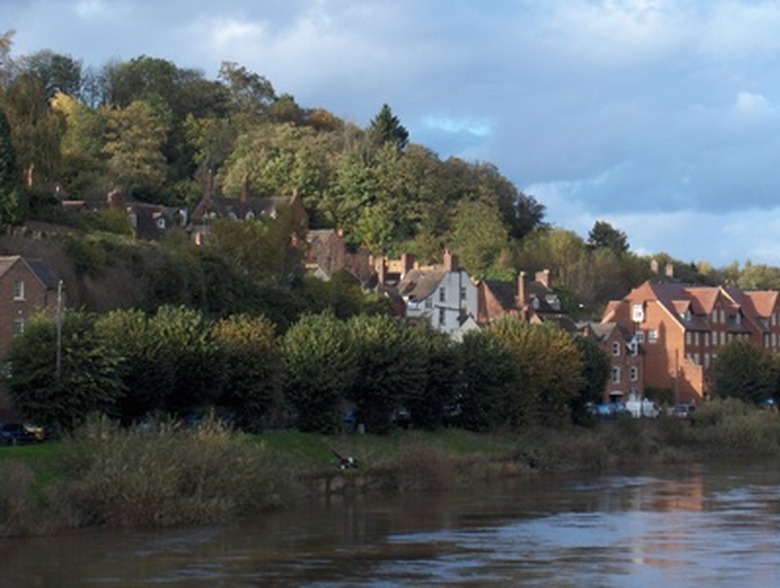River Soil Types
River soils are types of soil that are carried and deposited by the action of rivers, as opposed to ocean, wind and rain-based soils. While soils typically consists of some mixture of sand, loam and clay, this is a general description and does not touch on the complexities of soil layering and development. Soil in river areas can be especially complicated due to the materials rivers bring in from other areas.
Young Alluvial
Young Alluvial
Alluvial is a general description of soils carried from river sources and often deposited along banks or in deltas before the river ends. Because this type of soil tends to be a silty loam, it is one of the richest soils and is suitable for many different types of plant growth. Young alluvial soils are those recently deposited by the river that have not had time to settle yet. They tend to be gray in color and may lack certain important nutrients such as phosphor and nitrogen.
Old Alluvial
Old Alluvial
Old alluvial soils are found at the bottoms of rivers and in areas where the river has deposited soil over time. The soil has typically changed to a brownish color, and resembles a loam more than a silt, although it still retains finer, silt-like qualities.
Lacustrine
Lacustrine
Lacustrine soils typically occur when rivers enter freshwater lakes. While this type of soil tends to occur primarily in the lake itself, it is actually river soil that the river slowly deposits over time as it enters the lake. Because the only particles that can make it this far need to be light enough for the river to easily carry, this soil tends to be fine-grained.
Volcanic
Volcanic
Many rivers start in mountains and flow down into lakes and other large bodies of water. If the mountains that the rivers begin in are volcanic, then the river will pick up volcanic particles that it wears away from volcanic minerals such as lava rock and obsidian. This tends to make volcanic soils nutrient and mineral-rich, although the land far below the volcanic mountains usually benefits most from this soil.
Entisol
Entisol
Entisol soils are a special type of soil that occurs when rivers suddenly flood their banks and leave what particles they were carrying on the ground when they recede. Entisol soils are immature soils, unformed, and they will eventually combine with nearby elements and form into different soil types, depending on the minerals and nutrients nearby.
References
Cite This Article
MLA
Lacoma, Tyler. "River Soil Types" sciencing.com, https://www.sciencing.com/river-soil-types-13406908/. 21 July 2017.
APA
Lacoma, Tyler. (2017, July 21). River Soil Types. sciencing.com. Retrieved from https://www.sciencing.com/river-soil-types-13406908/
Chicago
Lacoma, Tyler. River Soil Types last modified March 24, 2022. https://www.sciencing.com/river-soil-types-13406908/
